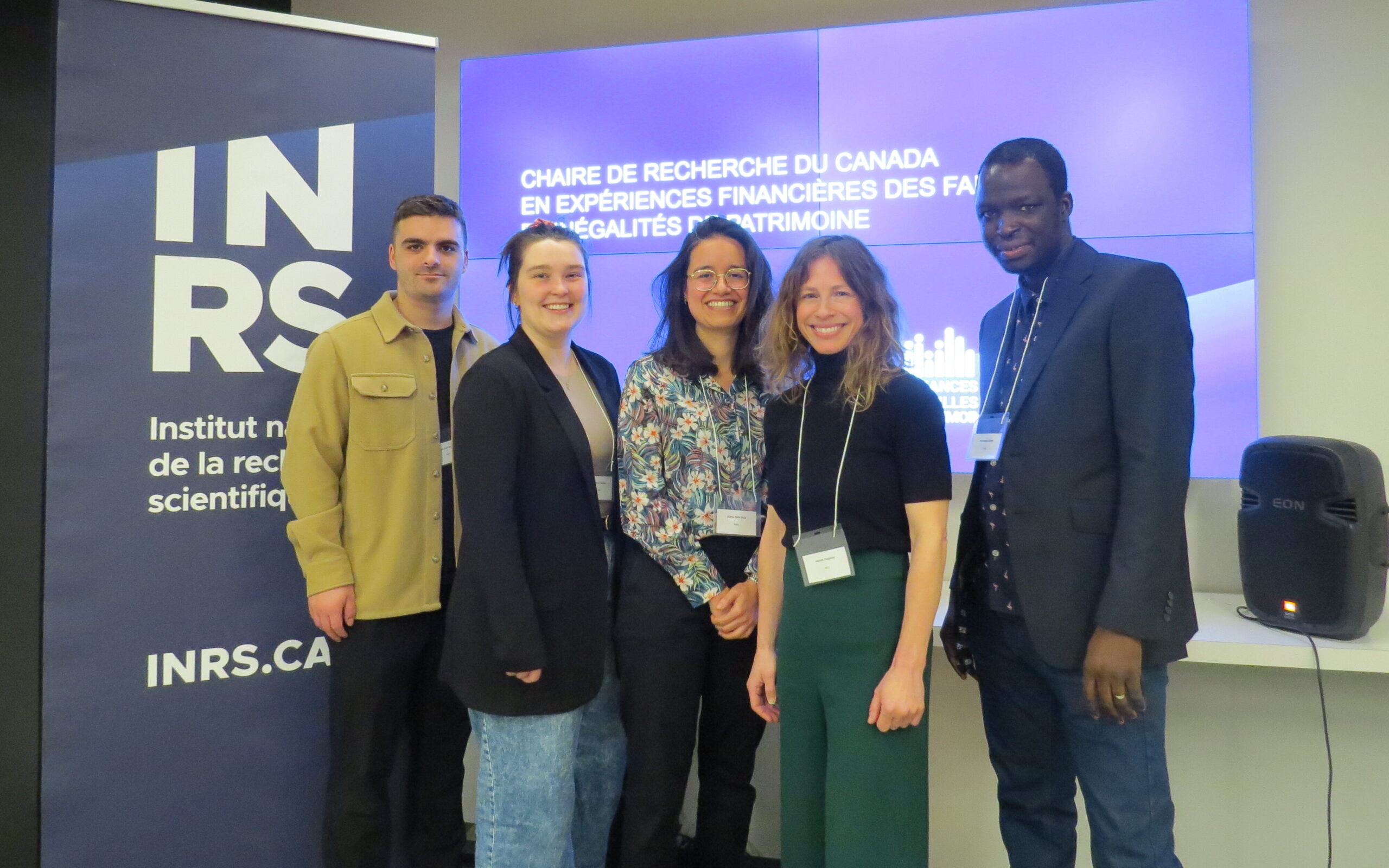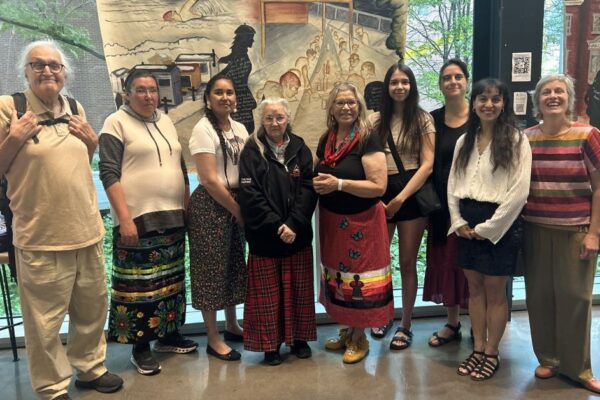- Research
- Science and Society
-
YOU ARE
- Community member
- Future Student
- Student
- Professor
- Alumni
- Media
- Guidance counsellors
- INRS retiree
- Contact Us
- Newsroom
- Careers
- FR
-
Studies
We teach the next generation of researchers to develop scientific, social, and technological innovations.
-
Research
We find solutions through interdisciplinary research and industry or public and community partnerships.
-
INRS
We play an active role in Québec's economic, social, and cultural development.
INRS professor Maude Pugliese unveils major data upon launch of research chair on wealth inequality in Canada.

Professor Maude Pugliese of the Institut national de la recherche scientifique (INRS) is the holder of the new Canada Research Chair in Family Financial Experiences and Wealth Inequality.
During the official launch of her Chair, Professor Pugliese unveiled the results of a groundbreaking study: the marked inequalities between men and women in terms of wealth, or net assets.
While we know a lot about income and pay inequalities, less is known about wealth distribution in Quebec, not least because appropriate data on this subject are scarce. “Yet wealth is an even more important resource for well-being than income, because it can act as a safety net in times of hardship and is crucial to well-being in retirement,” stresses the researcher at INRS’s Urbanisation Culture Société Research Centre who specializes in family dynamics and finances.
Beyond pay: significant inequalities between men and women
Until now, wealth has been measured at the household rather than the individual level in Canada. This categorization completely masked the inequalities between men and women in couples, who currently make up 40% of Quebec’s population.
To address this issue, in 2022 Professor Pugliese conducted the first-ever survey of the value of private wealth, involving 4,800 respondents in Quebec.
The findings speak for themselves: in the province’s general adult population, men have almost 30% more average net wealth than women. The gap widens even further when people are partnered. Among common-law couples, for example, men’s wealth is 80% higher than women’s, at $271,955, compared to only $151,895 for women.
“These gender gaps are far larger than the pay gaps we are currently seeing between men and women in Quebec,” notes Maude Pugliese. What’s more, even when the income differences between men and women were taken into account in the calculations, the team still observed a marked gender gap in wealth. This disparity remains largely unexplained. “For example, we could explore whether women inherit as much as men, or whether they receive the same financial services and advice,” elaborates the professor. This study clearly demonstrates the need for more in-depth data collection on private and family wealth to better understand these issues.
Maude Pugliese and her team, consisting of Ph.D. students Prisca Benoît, Mamadou Diallo, and Diana Pena Ruiz, published the detailed findings in December 2023 under the title “The Gender Wealth Gap in Québec” in Canadian Studies in Population.

A chair to oversee research on inequalities
It was against this backdrop that the Canada Research Chair in Family Financial Experiences and Wealth Inequality was officially launched in Montreal.
This Chair will act as a springboard for further research into topics at the heart of equity issues. Professor Pugliese’s research team will explore wealth inequalities from a familial, intergenerational, and intersectional perspective, with a particular focus on documenting wealth disparities by class, gender, race, ethnicity, and citizenship.
The team will develop innovative techniques for measuring wealth, using both quantitative and qualitative analysis. For example, they will use an interview guide to retrace wealth trajectories retrospectively.
To develop more research angles, the researchers will compile data on aging, financial literacy, and constraints on savings and credit products in the financial markets.
You may also like

January 25, 2024
For the well-being of all children
January 25, 2024
Regional Disparities in Access to EducationShare

